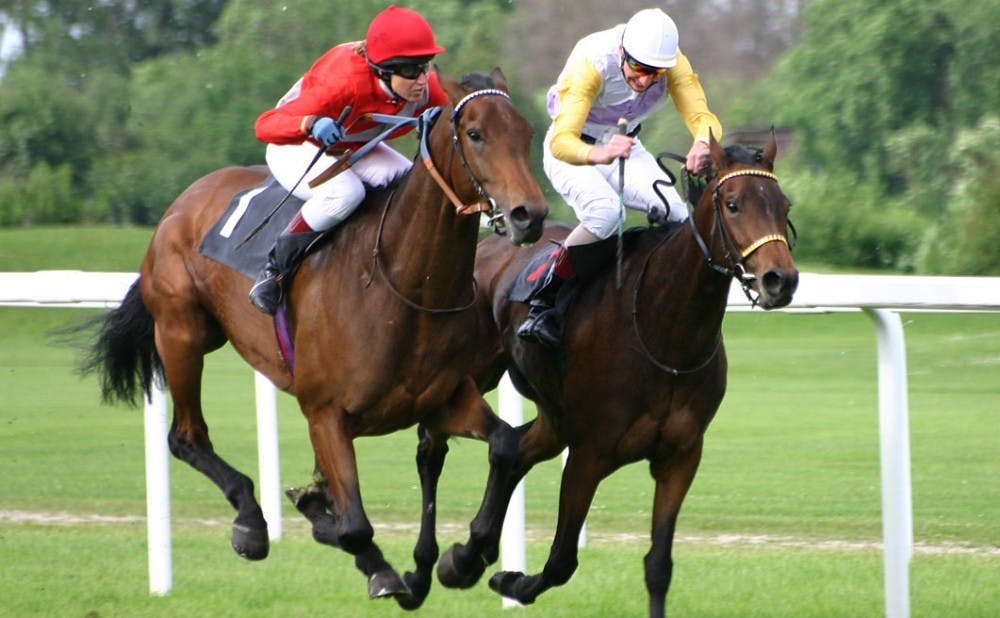This past Saturday, buses of Duke students made a three-hour trek to the midlands of South Carolina for the annual Carolina Cup—a unique mix of horse-racing, Southern flair and alcohol-induced shenanigans.
According to the Carolina Cup Racing Association, more than 60,000 attendees donned their most vibrant and fancy outfits for the event, which is centered around a series of steeplechase horse races. But the event's draw is not just limited to the horses. A majority of Duke students who went are involved in Greek life on campus, with their respective organizations coordinating attendance of the Cup as a shared experience that is rooted in tradition.
“It was funny how everyone seemed to be wearing Lilly Pulitzer clothes, pearls and floppy hats," said first-year Ellenor Brown. "There wasn’t an enforced dress code or anything, but the floral prints and authentic ‘Sunday best’ way of dressing is the trademark of the event."
First-year Michael Levin echoed Brown's thoughts, writing in an email that the general idea was to look as “ridiculously colorful and fancy as possible.”
In contrast to the bright colors donned by attendees was the row of white tents where students spent their day. Each fraternity traditionally hosts a tent, which is marked by their respective flags.
College students who attend the event are notorious for not actually watching the horse races, Brown explained. She said that the majority of her involvement at the Cup consisted of socializing with her friends and with the brothers of the fraternity that her sorority had paired with for the event.
Brown noted that her day included playing corn hole in her tent, conversing with friends and people watching—with loud music and the on-going horse races in the background.
“We explored other tents. One had a huge buffet with mashed potatoes, corn bread and huge bowls of goldfish, which was much needed in light of the amount of alcohol that was being consumed by people,” she said. “It was a pretty low-key experience for me.”
Attendees often begin their day with mimosas on the buses to the event, Brown explained, adding that many students consider alcohol to be central to the experience. She said that alcoholic beverages were served in the majority of tents, and most students were cautious to avoid being caught by the police supervising the location.
“I witnessed multiple arrests from a distance at different points in the day just from where I was,” Levin wrote. “Most were for alcohol violations, but some were also due to physical violence.”
Levin noted that there was something novel about the collective process of waking up early, traveling a great distance and being at an event with a huge crowd of people.
“Overall, it was a fun experience, but it definitely required a lot of energy, time and money that made me question whether or not it was worth it,” he wrote.
Both Brown and Levin said they were uncertain as to whether they would attend the event in coming years.
“I also got the sense that Duke students were looking forward to this event as a way to immerse themselves in a South Carolina tradition, a part of Southern culture which we don’t typically involve ourselves in deeply on Duke’s campus," Levin wrote. "With that said, however, compared to Duke—a bubble of great diversity and many different perspectives—I felt the demographic at the Carolina Cup was uncomfortably homogenous.”
Get The Chronicle straight to your inbox
Signup for our weekly newsletter. Cancel at any time.

